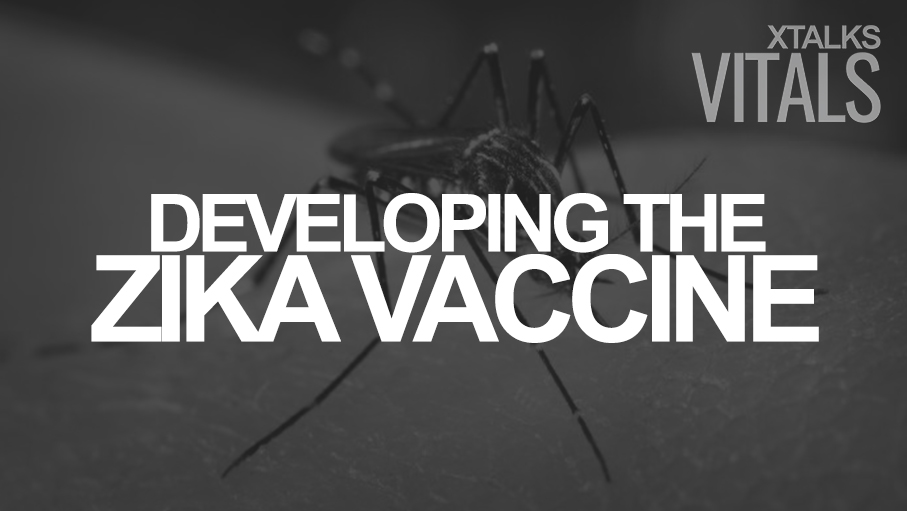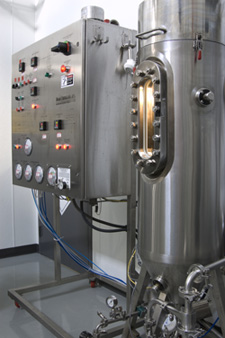In the wake of the World Health Organization’s (WHO) declaration that the ongoing Zika virus outbreak is a global public health emergency, the demand for a vaccine to prevent infection with the pathogen is at a fever pitch. While multiple pharmaceutical companies have pledged to begin development of a Zika vaccine, the long lead time and regulatory processes associated with vaccine discovery make it unlikely that one will be ready by the end of this year, or the next.
Nearly 4,000 cases of microcephaly – a birth defect characterized by an abnormally small head – have been reported in Brazil since October of 2015. Health officials believe the condition – which can result in brain damage and developmental problems – is linked to Zika virus infection in pregnant mothers.
The unknowns about the Zika virus also serve to complicate the vaccine development process. “Although a causal link between Zika infection in pregnancy and microcephaly has not – and I must emphasize – has not been established, the circumstantial evidence is suggestive and extremely worrisome,” Margaret Chan, director general of the WHO, said in a statement. “An increased occurrence of neurological symptoms, noted in some countries coincident with arrival of the virus, adds to the concern.”
Albert Ko, a Yale epidemiologist who is currently collaborating with the Ministry of Health in Brazil to study and track the Zika outbreak, said, “This is really a relatively new pathogen.”
Inovio Pharmaceuticals
Despite the inherent challenges of vaccine development for emerging pathogens, one company is reportedly farther along in the process of building a Zika vaccine. Inovio Pharmaceuticals – a pharmaceutical developer specializing in synthetic DNA-based vaccines – is considered to be the closest to a functional Zika vaccine, with one of the company’s scientists, Gary Kobinger, commenting that the vaccine could be approved for widespread use as early as October.
“I believe this will be the first to go into human testing,” said Joseph Kim, CEO of Inovio in an interview with Reuters. “We believe we’re ahead of the pack in the race for a Zika vaccine.” If all goes as planned, the company says they could start human clinical trials to test the vaccine as early as August.
Despite the optimistic outlook of those at Inovio, some are skeptical about the prospect of a Zika vaccine being available to the public in less than a year. “While these (new) approaches are promising, it is important to understand that we will not have a widely available, safe and effective Zika vaccine this year and probably not even in the next few years,” said Anthony Fauci, the head of the National Institute of Allergy and Infectious Diseases at the Nation Institutes of Health (NIH).
While Inovio has attempted to develop vaccines for most of the major epidemics in the recent past – including swine flu, bird flu, MERS and Ebola – the 36-year-old company has yet to secure US Food and Drug Administration (FDA) approval for any of their synthetic DNA vaccines. Despite their slow start, Inovio has received substantial funding – including $45 million for its Ebola vaccine project – and has seen stock growth since announcing their MERS vaccine.
DNA-Based Vaccines
Though the vaccine may take years to be approved for use, the good news for developers is that there are already effective vaccines available for other members of the Flaviviridae family – such as dengue, yellow fever and West Nile virus – which could be a great starting point for development of the Zika vaccine. In addition, because vaccine makers are focusing on creating a DNA-based vaccine to prevent Zika, this may also cut-down on the time to approval.
Traditional vaccines are made using live or attenuated (weakened) forms of a virus, which allow the body to mount an immune response against the pathogen, without experiencing the full symptoms of infection. These types of vaccines are very labor-intensive, – requiring viral culturing and modification – and can take between 10 and 15 years to gain regulatory approval.
DNA vaccines contain a synthetic strand of DNA capable of triggering the immune system to create antibodies able to defeat the virus, should the body be exposed to the pathogen. These type of vaccines require minimal development time, reducing the time to clinical trials.
“The beauty of this technological platform is that the vaccine is simply a DNA sequence developed in water,” said Kim. “It cuts through all the difficult handling and complex development times of traditional vaccine approaches.”
Sanofi Pasteur, GeoVax and GlaxoSmithKline
Other contenders – including Sanofi Pasteur, GeoVax Labs and GlaxoSmithKline – have announced their intention to begin working on a Zika vaccine. Sanofi’s plan hinges on using knowledge from their newly-approved dengue vaccine, and their long history in the vaccines space, to develop a Zika vaccine.
“We really hope to significantly reduce that timeline and cut years off the typical amount of time it takes to develop a vaccine,” said Nicholas Jackson, the head of vaccine research at Sanofi, in an interview with CNN. “We have a jump start here because we have experts in house, we have technologies in house. We have an infrastructure that we’ve put in place around our dengue vaccine that we can tap into very quickly.”
GeoVax, on the other hand, just announced their entry in the Zika vaccine race earlier this week. “We believe our MVA-VLP vaccine platform is uniquely suited to apply to the Zika virus. Our platform has been proven to produce in vivo non-infectious virus-like particles (VLPs) for both our HIV and Ebola vaccines, and we are confident we can demonstrate the same with Zika,” said Dr. Robert McNally, President and CEO of GeoVax. “Producing VLPs in the very person being vaccinated mimics a natural infection, stimulating the humoral and cellular arms of the immune system to recognize, prevent, and control the target infection. As an additional advantage, our vaccine platform has already been proven safe in humans through multiple clinical trials involving over 500 individuals in our HIV program.”
Pharmaceutical giant GlaxoSmithKline has also expressed their willingness to enter the Zika vaccine race, though the details of their plan have not been released. “We’re concluding our feasibility studies as quickly as we can to see if our vaccine technology platforms might be suitable for working on Zika,” said Anna Padula, a GlaxoSmithKline spokeswoman, in an email to Reuters.
For now, efforts to control the Zika outbreak are focused on controlling populations of the Aedes mosquito – the animal vector responsible for the spread of the virus. Public health workers in Brazil are using pesticide sprays to kill the mosquito, and destroying standing water breeding grounds to stop them from reproducing.
How long do you think it will take to develop a working Zika vaccine? Share your thoughts in the comments section below!










Join or login to leave a comment
JOIN LOGIN